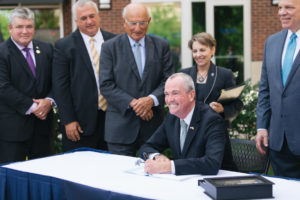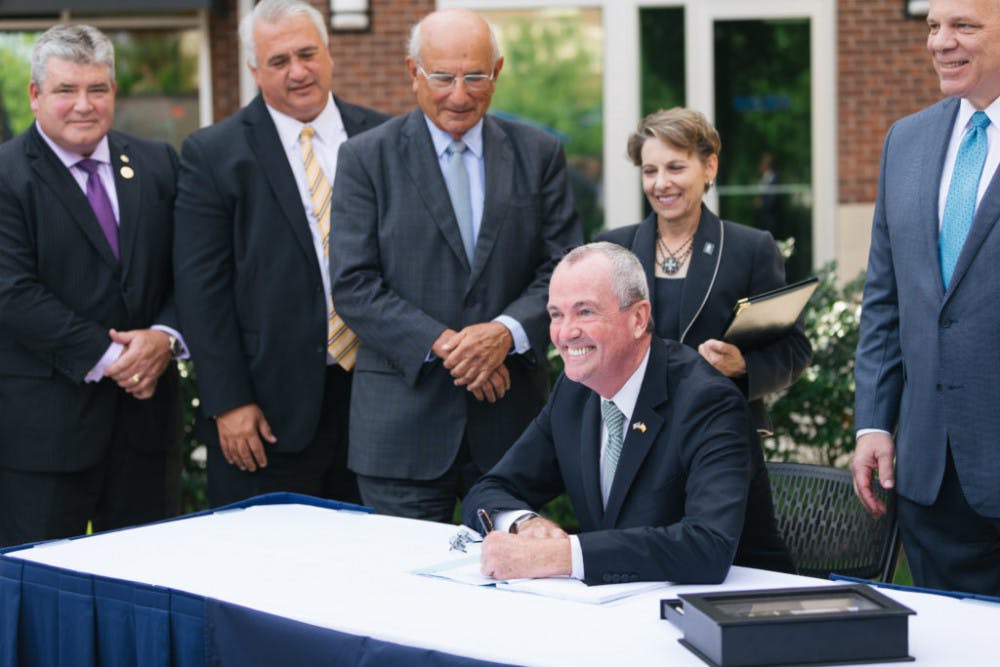By Ariel Steinsaltz
Staff Writer
New Jersey Gov. Phil Murphy signed bill S-865 into law, which expanded on the New Jersey Economic Stimulus Law passed in 2009, when he visited campus on Aug. 14.
The 2009 law permitted colleges to enter public-private partnerships that allow for building projects and highway infrastructure, meaning that private organizations can construct and run business on public land owned by a college, as long as the college still owns the land. The law requires local public input and finance controls.
The law eventually led the College to lease out its land for the construction of Campus Town, which now contains a myriad of privately-owned businesses.
According to Campus Town’s website, the College reached out to private developers to design, operate and maintain new student apartments and retail stores after the passage of the 2009 law.

Campus Town is now home to several restaurants and retailers that serve both the student body and the public, in addition to four-bedroom, two-bedroom and one-bedroom apartments for students. All of the business are owned by private organizations that lease the land from the College.
The law stipulated that the private entities would have financial and administrative responsibility for the development, construction, improvement and maintenance of the projects and that the private organizations would have to do all of the financing for the buildings, despite government ownership of the land.
The intention of extending the 2009 law is to further economic growth in New Jersey by allowing for more of these public-private partnerships, known as P3 agreements. “The New Jersey Economic Stimulus Act was initiated in 2009 and then extended in 2013 and again in 2015. The bill Gov. Murphy signed last week made the public-private partnership permanent with oversight by the NJ Economic Development Authority,” said Luke Sacks, the College’s head media relations officer.
The new bill was implemented immediately after Murphy signed it, meaning that the P3 agreements are now permanently protected and more can be made across the state.
College President Kathryn Foster commented on how the new bill was going to change the campus community, and the services that retailers provide.
“Campus Town is an enormously successful public-private partnership between TCNJ and The PRC Group,” Foster said. “This is a 350,000 square foot development that provides attractive housing, retail outlets and amenities for our students that would not have been possible without a P3 agreement.”
Governor Murphy applauded the bipartisan support of the bill and the economic benefits of public-private partnerships, according to a press release from the College.
He noted that both Democrats and Republicans recognize that tremendous benefits can be received when public officials and private sector partners work together.
“By doing so, we give state, county and local officials the much-needed flexibility they need to improve their communities while creating good-paying new jobs –– in most cases good, union jobs –– while leveraging private capital to invest in public infrastructure,” Murphy said, according to the press release.







